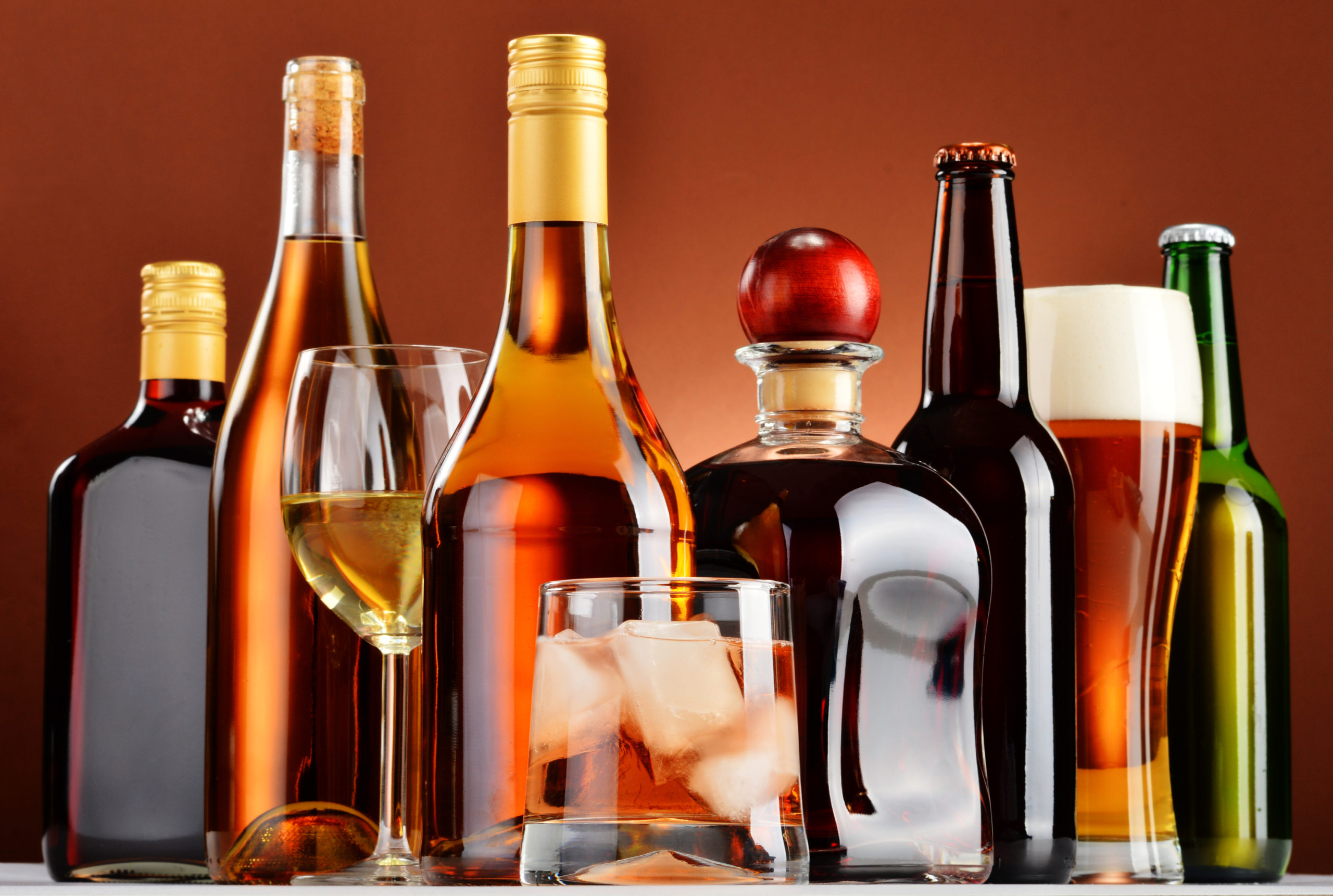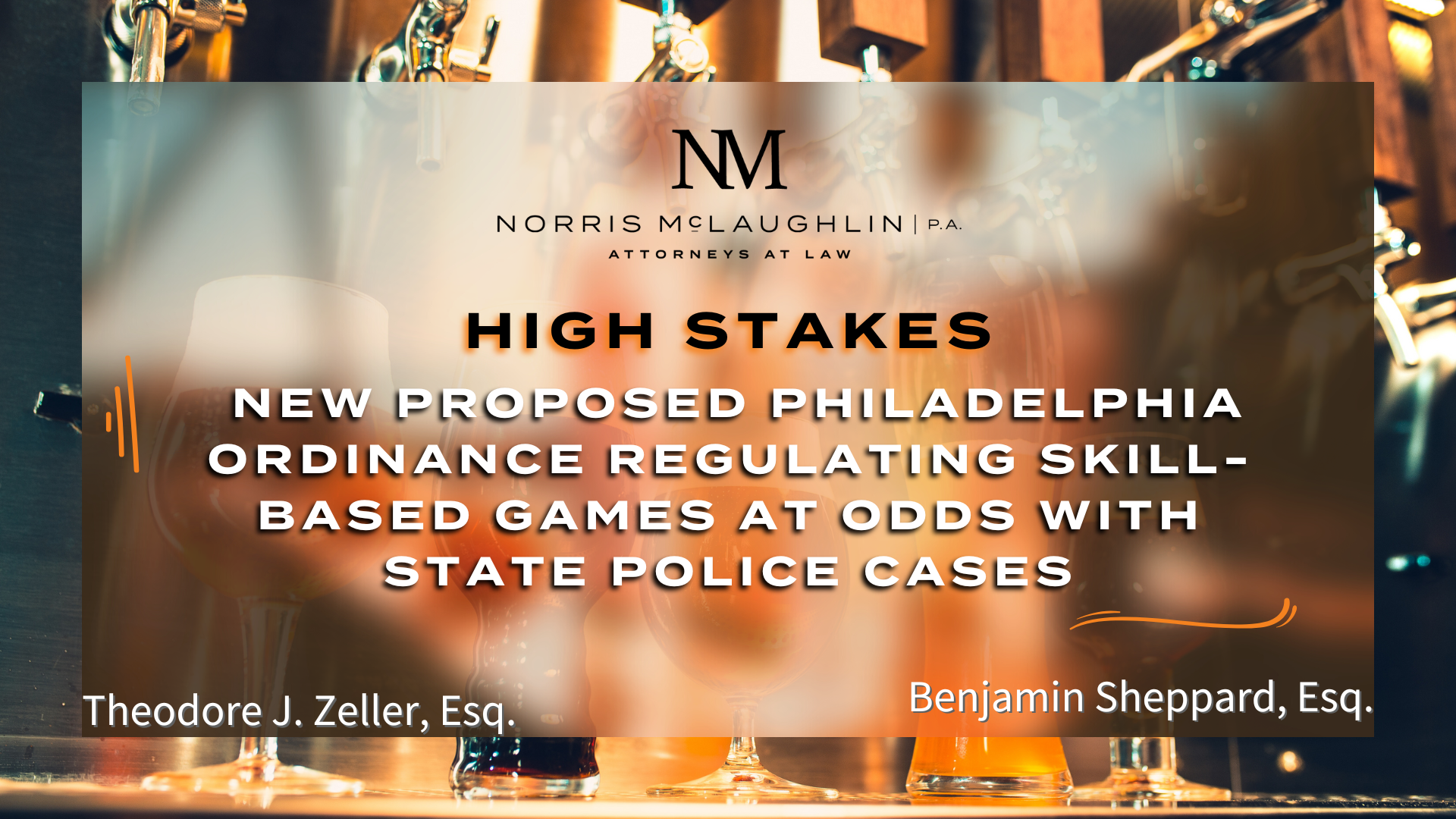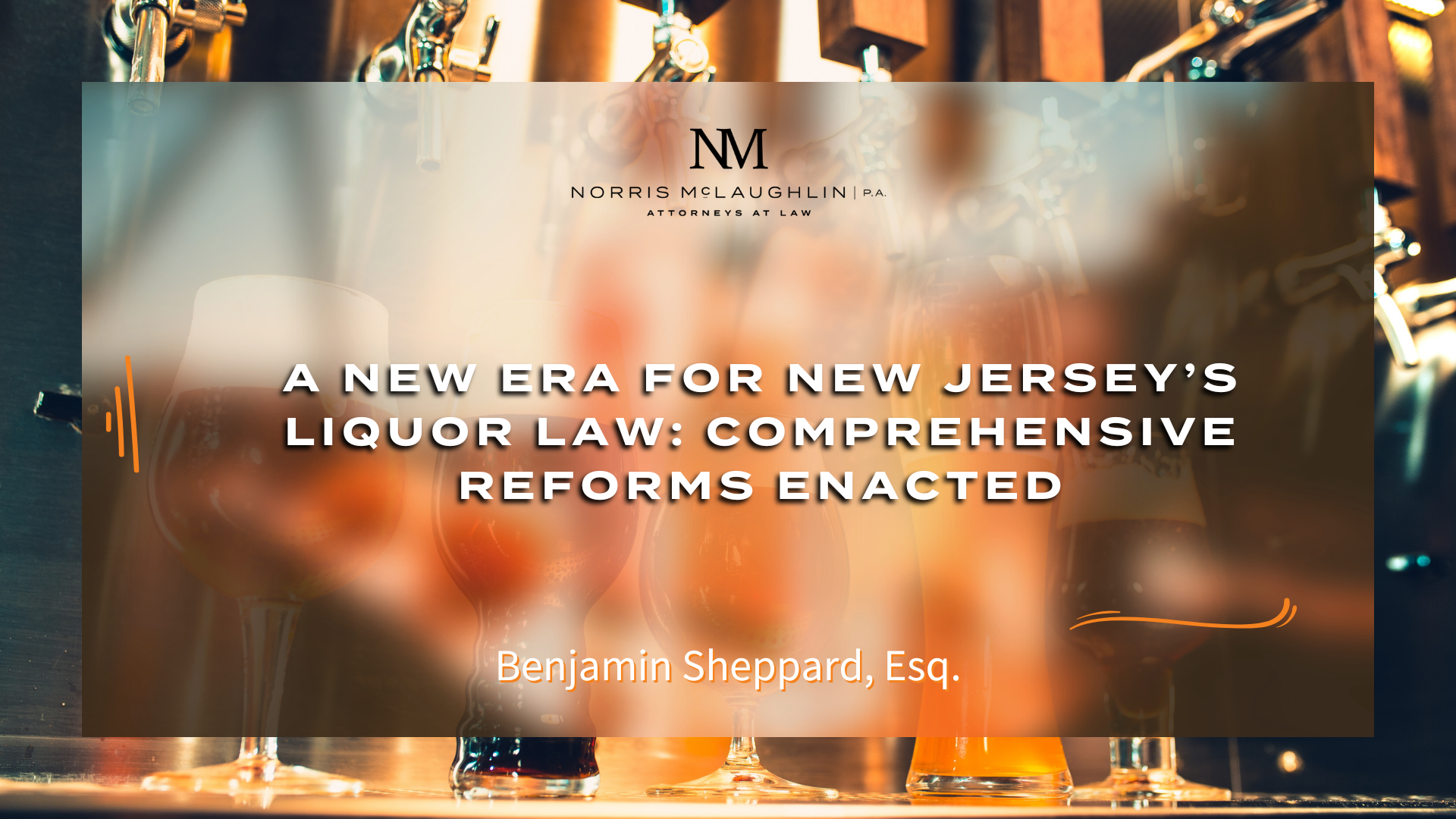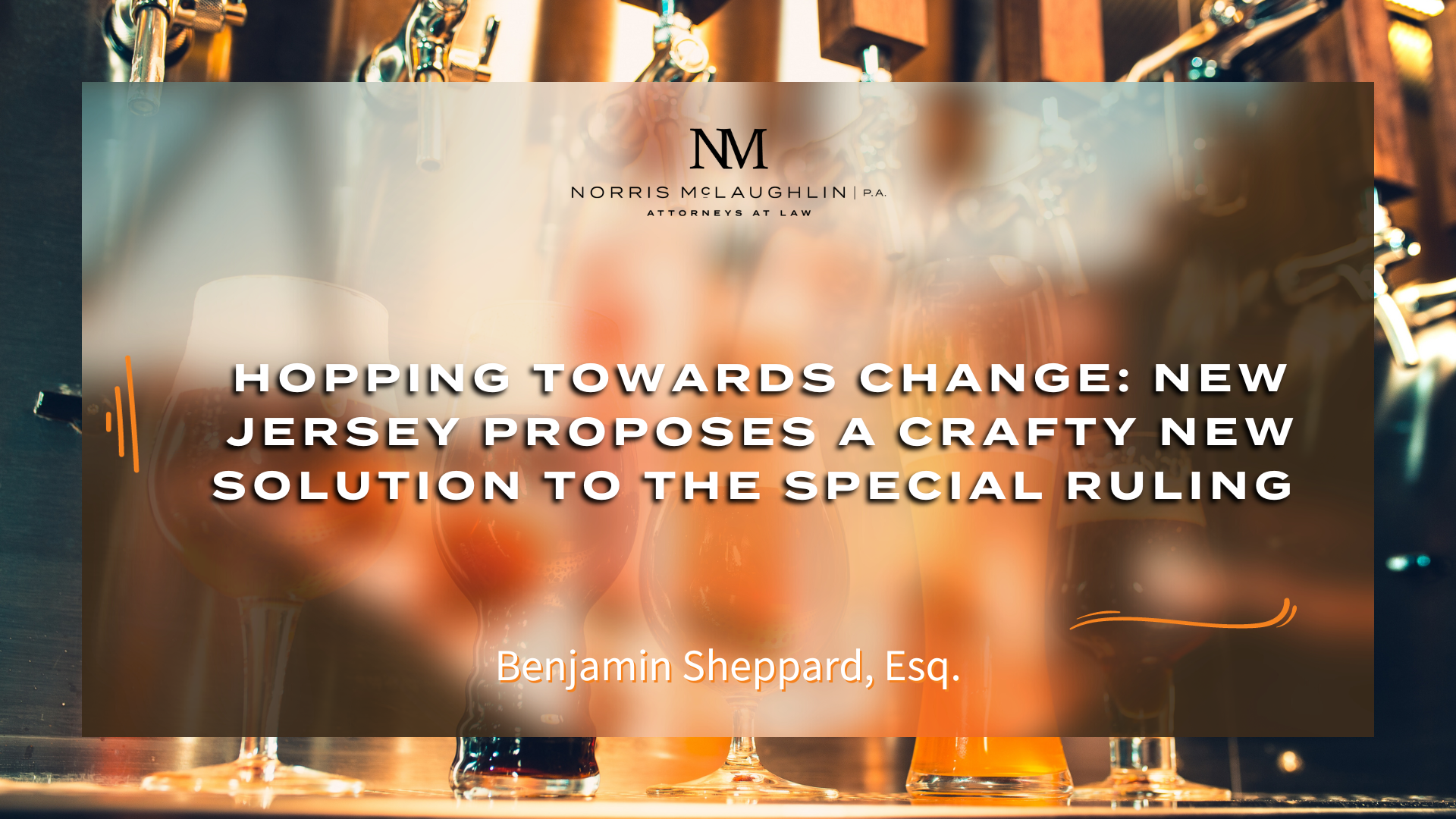New Jersey Amends the Alcoholic Beverage Control Act to Address the Manufacture and Sale of Hard Cider and Mead – Part 2: Wineries and MABPA.

In addition to creating the Cidery and meadery license (see Part 1 for a discussion of the privileges of that license), the recent amendments to the Alcoholic Beverage Control Act (“Act”) amended the definition of “wine” in those sections that had previously created the State’s various winery licenses - Plenary winery license, Farm winery license, Wine blending license, Instructional wine-making facility license, and Out-of-state winery license. The definition of “wine” was expanded to include both hard cider and mead. This is great news for wineries, because they can now manufacture and sell hard cider and mead in addition to wine (in accordance with the provisions governing the particular winery license).
Recall from Part 1 that businesses holding a Cidery and meadery license and who sell hard cider to wholesalers are also governed by the Malt Alcoholic Beverages Practices Act (“MABPA”). MABPA, among other things, requires manufacturers (of beer) to provide wholesalers with exclusive territories, and makes it difficult for manufacturers to terminate wholesalers. Adherence to MABPA can be very onerous and can have a serious impact on a manufacturer’s finances and operations. MABPA does not apply to wineries, and the recent amendments do not appear to change that, since the MABPA requirement was added to only the section creating the Cidery and meadery license (and was not included in the sections governing wineries that can now make and sell hard cider).
This dichotomy could be significant for someone looking to enter the hard cider market in New Jersey. A business may want to consider starting a winery to manufacture and sell hard cider as opposed to seeking a Cidery and meadery license, so they can avoid the requirements of MABPA. Although starting a winery could be more expensive (e.g., the Plenary winery licensee and Farm winery licensee must cultivate and grow fruit on at least 3 acres of land on or adjacent to the licensed premises), those costs may be worthwhile if it means you are not subject to MABPA.
For information regarding national and state liquor law matters or general manufacturing and distribution advice, please contact our Liquor Law, Licensing, Manufacturing, and Distribution Practice Group: Liquor Law Department Chair Theodore J. Zeller III, Esquire (tzeller@norris-law.com); David C. Berger, Esquire (dberger@norris-law.com) for Pennsylvania and New Jersey retail and manufacturing licensing; or contact our offices at 610-391-1800.



